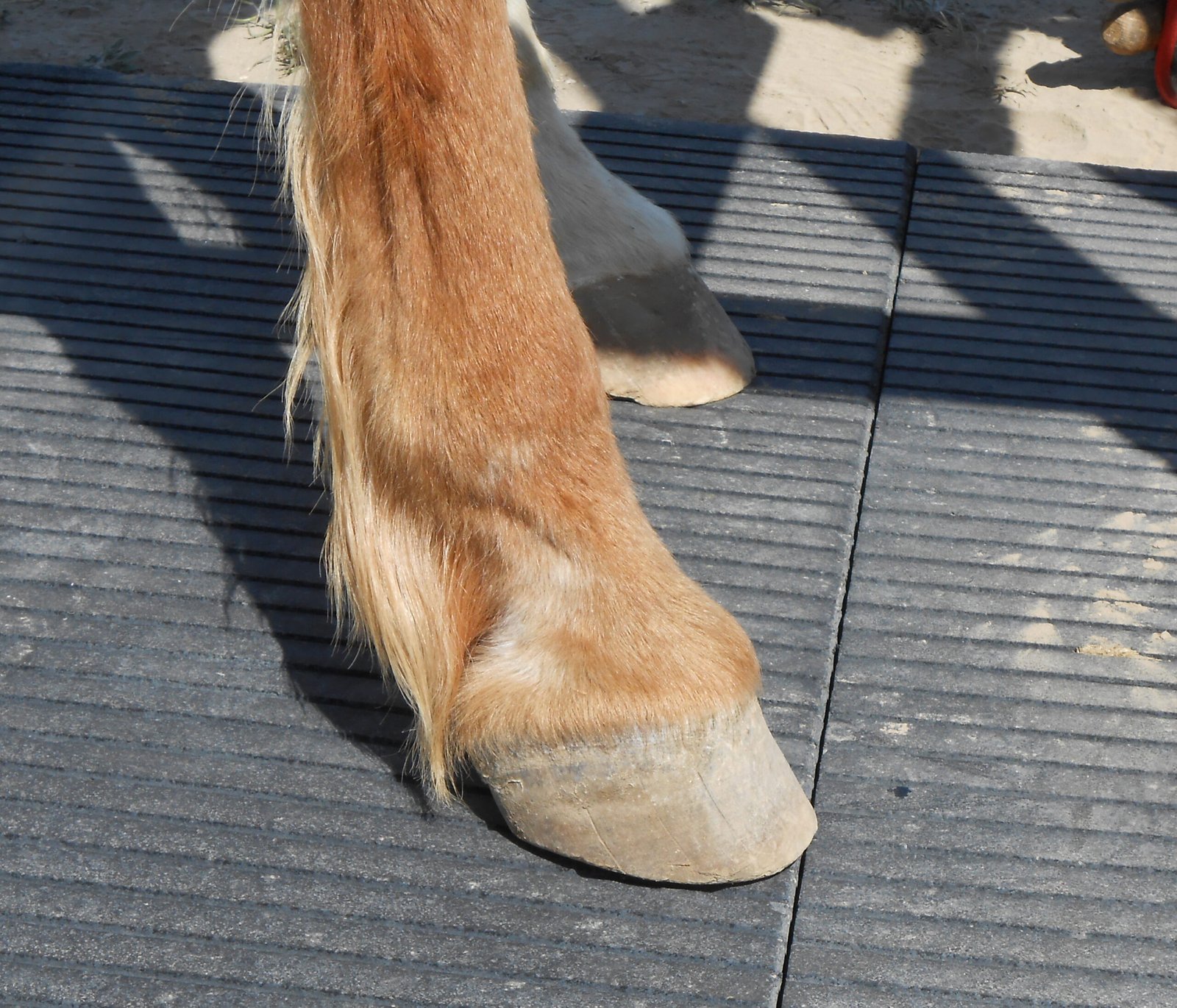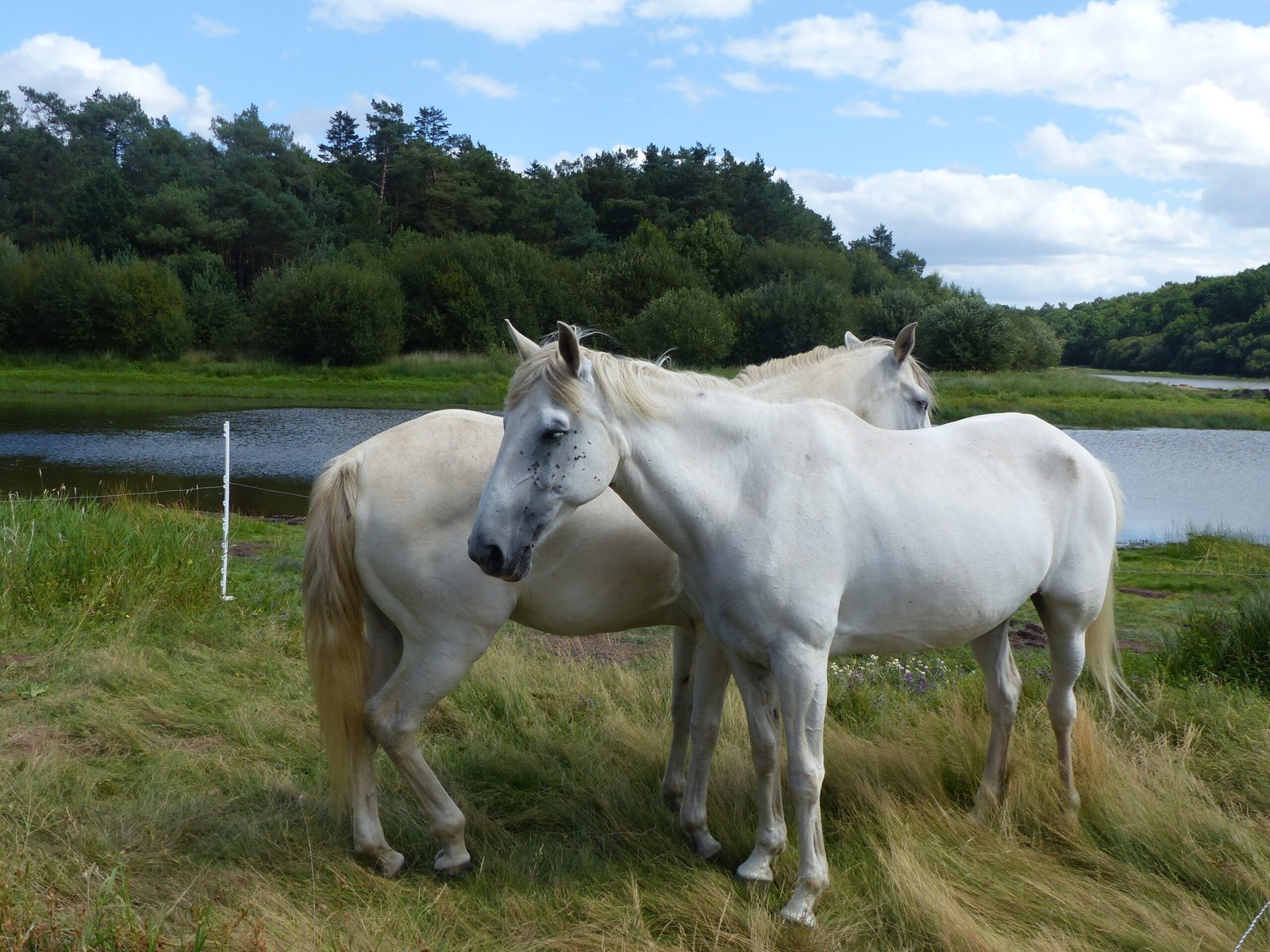For any horse lover, ensuring that your equine companion is both healthy and happy is a top priority. Horses, much like humans, express their well-being through various signs. Understanding these signals can help you maintain a strong bond with your horse, ensuring they are well cared for. Let’s delve into the 13 unmistakable signs that your horse is thriving.
Bright and Clear Eyes

A horse’s eyes are often described as the windows to their soul. When a horse is healthy, their eyes will shine bright and clear. There should be no signs of redness, cloudiness, or excessive tearing. Much like how humans might look tired or worn when feeling unwell, a horse’s eyes can indicate their overall health. If you notice any dullness or discharge, it might be time for a check-up. Remember, eyes are delicate, and early detection of any issues can prevent more significant health problems.
Glossy Coat
A shiny, glossy coat is a classic indicator of a horse’s good health. This sheen comes from the natural oils that the skin produces, which are distributed through regular grooming and a balanced diet. If your horse’s coat appears dull or patchy, it might signal nutritional deficiencies or underlying health issues. Regular grooming can not only keep the coat shiny but also strengthen the bond between you and your horse. It’s like a spa day for them, leaving them relaxed and content.
Healthy Appetite
A healthy horse will have a consistent and robust appetite. They should eagerly anticipate feeding times and consume their meals with enthusiasm. A sudden change in appetite can indicate stress, illness, or dental problems. Just as we might lose our appetite when feeling under the weather, horses do the same. Monitoring their eating habits can be a direct insight into their overall health. Always ensure they have access to fresh water and a balanced diet to keep them in top condition.
Regular, Firm Droppings
It might not be the most glamorous topic, but a horse’s droppings provide essential insights into their digestive health. Regular, well-formed droppings indicate a healthy digestive system. Any significant changes, such as diarrhea or constipation, can point to dietary issues or illness. Just as with humans, maintaining digestive health is crucial for overall well-being. Regularly checking their droppings can help catch any potential issues early on.
Energetic and Playful Behavior
A happy horse is often an energetic one. They will display playful behavior, whether frolicking in the pasture or interacting with other horses. This energy indicates they are both physically and mentally stimulated. If your horse seems lethargic or uninterested in activities, it could be a sign of fatigue or discomfort. Horses are naturally curious creatures, and their playful antics are a testament to their happiness and health.
Strong, Healthy Hooves

The old saying, “no hoof, no horse,” emphasizes the importance of hoof health. Healthy hooves should be strong, without cracks or unusual growths. Regular farrier visits can ensure your horse’s hooves remain in top condition. Any signs of lameness or discomfort can indicate underlying hoof issues that need addressing. Just like a sturdy foundation is crucial for a building, strong hooves are essential for a horse’s mobility and well-being.
Calm and Relaxed Demeanor
A calm and relaxed horse is a happy one. They should appear comfortable in their environment, without signs of nervousness or stress. Horses are incredibly perceptive animals, and any tension in their demeanor can be indicative of discomfort or unease. Just as people might feel anxious in unfamiliar surroundings, horses can too. Ensuring they have a stable and familiar environment can significantly impact their mental health.
Responsive to Commands
A healthy and content horse will be responsive to commands and training. They should be willing to learn and engage with their handler. If a horse suddenly becomes unresponsive or acts out, it might be a sign of pain or distress. Much like how a student might struggle to concentrate if feeling unwell, a horse’s attention and responsiveness can reflect their health. Regular training sessions can strengthen your bond and keep them mentally stimulated.
Steady Breathing
Observing a horse’s breathing can provide insights into their respiratory health. Healthy horses have steady, even breaths, without wheezing or labored breathing. Any changes in their breathing patterns can indicate respiratory issues or stress. Just as we might struggle to breathe when feeling anxious or sick, horses can exhibit similar signs. Regular exercise and a clean environment can help maintain their respiratory health.
Healthy Weight
Maintaining a healthy weight is crucial for a horse’s overall health. They should have a balanced physique, without being too thin or overweight. Regularly checking their weight and ensuring they have a balanced diet can prevent health issues. Just like in humans, weight can be an indicator of underlying health problems. Keeping them active and monitoring their diet can ensure they remain at an ideal weight.
Social Interaction

Horses are inherently social creatures, thriving on interaction with other horses or humans. A healthy horse will engage positively with others, showing interest and affection. If your horse seems withdrawn or aggressive, it could be a sign of stress or discomfort. Just like people, horses need companionship and social interaction for their mental well-being. Ensuring they have opportunities for socialization can keep them content and happy.
Alert Ears
A horse’s ears are incredibly expressive, reflecting their mood and well-being. Healthy horses will have alert, forward-facing ears, showing interest in their surroundings. If their ears are pinned back frequently, it might indicate irritation or discomfort. Observing their ear movements can provide insights into their emotional state. Just as humans might raise an eyebrow in curiosity, a horse’s ears can show their level of engagement.
Good Muscle Tone
A well-toned horse indicates regular exercise and a balanced diet. Their muscles should be firm and well-defined, without signs of atrophy or excessive fat. Regular exercise not only maintains their physical health but also keeps them mentally stimulated. Just as an athlete maintains peak condition through training, horses benefit from consistent activity. Ensuring they have ample opportunities for exercise can keep them fit and happy.
In conclusion, understanding and observing these signs can help ensure your horse is both healthy and happy. Regular care, attention, and love can foster a strong bond between you and your equine companion, ensuring many joyful years together.

Sumi Sarkar from India holds a B Tech degree in Information Technology, is a freelance film maker, scriptwriter, content editor who loves animals, especially dogs.





